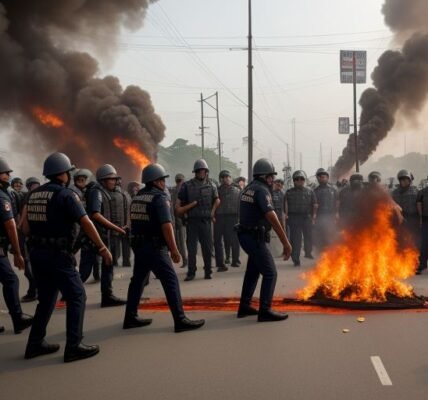Right now, several southern European countries are experiencing the worst heat wave in living memory. The effects of this particular extreme weather event have amplified worries over the fast-growing effects of climate change, and has tested local capabilities and resources for disaster management to their limits.
Spain, Italy, Greece, and some parts of Balkan have been having above 40 degree Celsius (104 F) for the past few days. Some of the areas have been reaching the temperatures of 49°C (122°F), which eliminate previous records and becomes lethal for people living and traveling in such climate.
High temperatures have also increased cases of admission of patients suffering from heat complications especially among old persons and those with other diseases. The suburban and city governments have developed significant weather alerts and have opened refrigeration centers in buildings for a susceptible populace.
It has also led to a string of wildfires across the region as firefighters struggle to put out the flames in several countries. It is reported that in Greece huge chunks of forest have been engulfed in fires, some of which have led to the evacuation of neighboring towns and villages. It is worse in some of the Greek islands where holiday makers have been forced to be evacuated by the use of boats as fires threatened to reach some of the beach destinations.
Benchmarking currently prepared organizations studied the Elementary Agricultural sectors across the Southern European countries about the quantity of crop losses due to the highly contracted temperatures. They said there could be a shortage in food supplies and high prices in the next few months because harvests will be significantly affected. The wine industry, which is an important branch of the economy in a number of Mediterranean countries, said that the quality and volume of this year’s grape crop is in doubt.
Severe heat has a massive impact on energy consumption and particularly has influenced the capacities of electrical networks in the area. Counties have already witnessed localized outages that resulted from increased demand for air conditioning. The energy distribution firms are encouraging the consumer to reduce their power usage during the peak hours to avoid massive blackouts.
Some climate scientists are already linking this heat wave to the changing climate and increased extreme heat observed in many parts of the world today. He also pointed out that reading those reports, one gets the understanding that more frequent and severe cases of extreme weathers are expected in the future if radical measures are not taken to control the emission of green house gases.
It has raised the climate policy issues that are ridiculous all over Europe again. The organizations such as green groups and certain political parties are demanding that more forceful actions should be made for managing climate change, hasty shift towards cleaner sources of energy, and cutting emission limits on carbon.
The effects of the heatwave are already being felt in the tourism business that is central to the economies of many Southern European countries. Some have had to travel back early or even cancel their trips, owing to the prevailing harsh weather. It may prove devastating for nations that are still struggling to overcome the blows the COVID-19 pandemic dealt to their tourism industries.
Ministers are especially worried by cross-exposure to heatwaves and air pollution given that the two have negative impacts on the human health. High temperatures in numerous urban regions have been proven to have resulted in high levels of ground-level ozone and other pollutants thus leading to enhanced elevated levels of air quality.
The heatwave has also raised questions on the character and structure of the modern Southern European cities. Currently, green areas are scarce and the buildings’ materials often increase temperature in urban areas which makes cities most vulnerable to heat shocks.
People still suffer heat-wave increases and calls go on for better mitigation measures to protect against these kinds of end-of-century conditions. This encompasses-framing effective vulnerable period alerting systems, enhancing heat refractory building structures, and setting up national and sub national heat action plan.
Southern Europe today offers one of the vivid examples of the tangible effects of climate change on the human society. It highlights need for International to act on climate change issue in reducing emissions of green house gases and adapting to climate change. As we move further into the twenty first century and as climate inexorably warms, the ability of communities, ecosystems and economies




